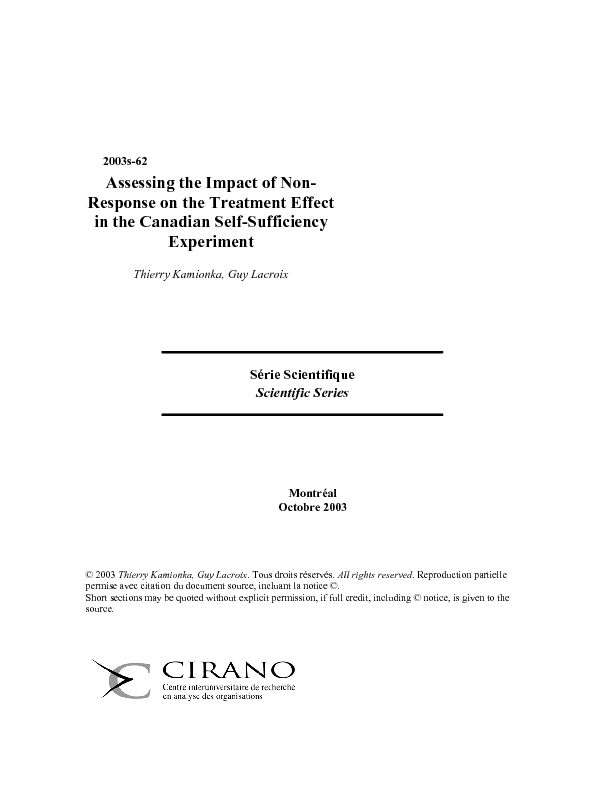Assessing the Impact of Non-Response on the Treatment Effect in the Canadian Self-Sufficiency Experiment
In Canada, a policy aiming at helping single parents on social assistance become self-reliant was implemented on an experimental basis. The Self-Sufficiency Entry Effects Demonstration randomly selected a sample of 4 134 single parents who had applied for welfare between January 1994 and March 1995. It turned out only 3 315 took part in the experiment despite a 50% chance of receiving a generous, time-limited, earnings supplement conditional on finding a full-time jobs and leaving income assistance within a year. The purpose of this paper is to determine whether a non-response rate as high as 20% is likely to bias the measurement of the treatment effect. We compare the estimated impact of the program using experimental data only to that obtained using additional data on individuals not taking part in the experiment. We write the likelihood of various sets of information and obtain relevant estimates of program impact on welfare spell durations. We find strong evidence of non-response bias in the data. When we correct for the bias, we find that estimates that rely on experimental data only significantly underestimate the true impact of the program.
[ - ]




